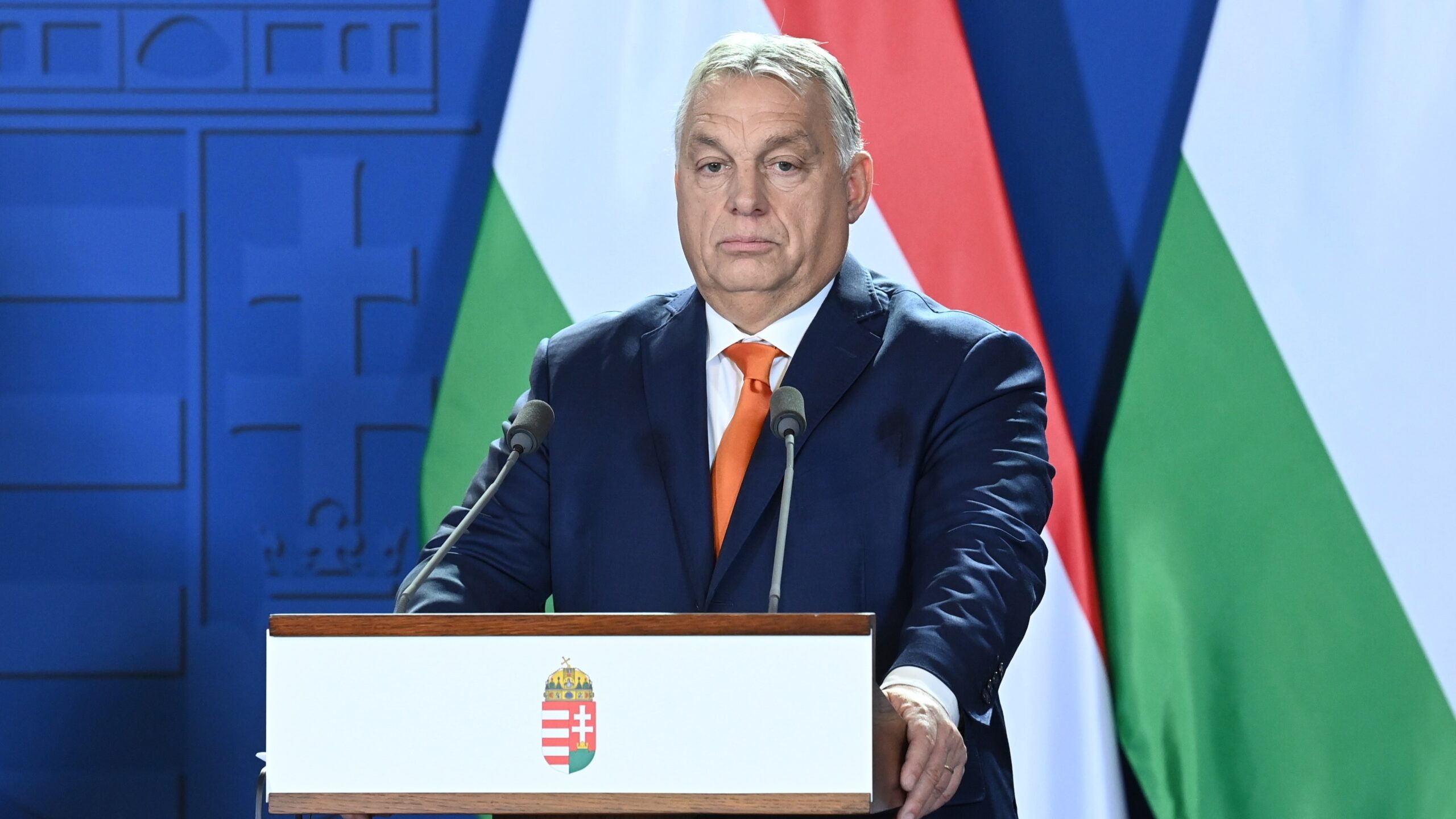Viktor Orbán’s long reign as Prime Minister of Hungary could be coming to an end in 2026, according to a video analysis by TLDR News EU. Currently, the fifth Orbán administration is in power in Hungary. He has been in office since 2010, and had served an additional term between 1998 and 2002. His Fidesz-KDNP coalition also won four elections in a row with a constitutional supermajority.
After all this success, is Viktor Orbán’s popularity really waning that drastically?
Well, that is unlikely. As you could come to expect from any ‘cutesy’ info video on the internet, it does selectively choose what to highlight to create a narrative. The video’s thesis is based on the fact that the Tisza Party had overtaken Fidesz in POLITICO’s Hungarian polling aggregate—since then, however, Fidesz has gotten back in the lead.
Is This the Beginning of the End For Orbán?
Compare news coverage. Spot media bias. Avoid algorithms. Try Ground News today and get 40% off your subscription by going to https://ground.news/tldr. Viktor Orbán’s Fidesz has governed Hungary for nearly 15 years now. But, according to the recent polls, his tenure might soon come to an end.
The presenter does concede at the end that Orbán’s party has a history of overperforming the polls. That, however, is a bit of an understatement. Ahead of the 2022 Hungarian election, in the fall of 2021, local pollsters Republikon, Publicus, Medián, and Závecz Research have all put out national polls with the united opposition leading Fidesz, even by as much as nine points. Yet, Fidesz-KDNP ended up winning the 2022 election by 19 points in April 2022. What’s more, by January 2022, the opposition even failed to collect the 200,000 signatures needed to get their proposed referendum questions on the ballot.
‘In the 2024 European Parliamentary election, Fidesz beat newly emerged opposition firebrand Péter Magyar’s Tisza Party by 15 points’
Also, there were no national polls showing Fidesz having anywhere near their eventual margin of victory in the spring of 2022 either. The party outperformed the poll showing their biggest lead, 11 points, by a massive eight points.
In the 2024 European Parliamentary election, Fidesz beat newly emerged opposition firebrand Péter Magyar’s Tisza Party by 15 points. While that was a smaller margin for Fidesz than in the 2019 EP election, it was still the third-highest in Europe. Additionally, incumbent parties tend to perform worse in elections held between general elections. This held true for Fidesz as well, who increased its vote share from 52 per cent to 54 per cent from the 2019 EP election to the 2022 Hungarian parliamentary election.
Some, including the creators of this video, also speculate that Magyar’s quick rise to prominence suggests great electoral prospects for him in the 2026 election as well. After all, he only announced his candidacy months before the election, and ended up getting almost 30 per cent of the popular vote.
However, we have seen a similar story before—in Hungary and abroad alike.
The liberal-progressive Momentum party with a young, energetic base got nearly 10 per cent in the 2019 EP election, the first national election they competed in. By 2024, however, they failed to win any seats in the European Parliament, got just 3.70 per cent, and are now on the brink of collapse. In the 2021 opposition primary for the 2022 Hungarian parliamentary election, their candidate and party chairman András Fekete-Győr finished dead last with just 3.40 per cent.
Similarly, in the 2019 election in the United Kingdom, Nigel Farage’s Brexit Party came in first (imagine that for the Hungarian opposition, actually winning a national election…). The party was founded just months before the election as well. Yet Farage, while remaining an influential figure in British politics, finished third in the popular vote with his new Reform Party in the 2024 election.
Since the EP elections this June, Magyar has had to face a slew of scandals about his personal life. One thing conspicuously missing from TLDR News’ analysis is that both his ex-wife, Former Minister of Justice Judit Varga, and his most recent girlfriend Evelin Vogel have accused him of domestic abuse.
‘Since the EP elections this June, Magyar has had to face a slew of scandals about his personal life’
This is likely to be a major setback for Magyar with female voters, if mainstream political analysis in the West has taught us anything. And that comes in addition to any Hungarian opposition party's 'Catch-22': are they going to embrace the ideas of mainstream Western liberalism, which is unpopular with the Hungarian electorate; or are they going to reject it, which would demotivate the minority base of younger, urban voters, who support them?
Similarly, are they going to distance themselves from Former Prime Minister Ferenc Gyurcsány, who is despised by a majority of the voters, but still sits in parliament as an elected MP, and chairs the opposition party Democratic Coalition (DK)? If they do so forcefully enough, they will likely have to give up courting DK's voting base, a party that got eight per cent in this year's EP election.
So, Péter Magyar, or any challenger in Hungarian politics, still has a lot to figure out before we can talk about the 'beginning of the end' for the Orbán era.
Related articles:







